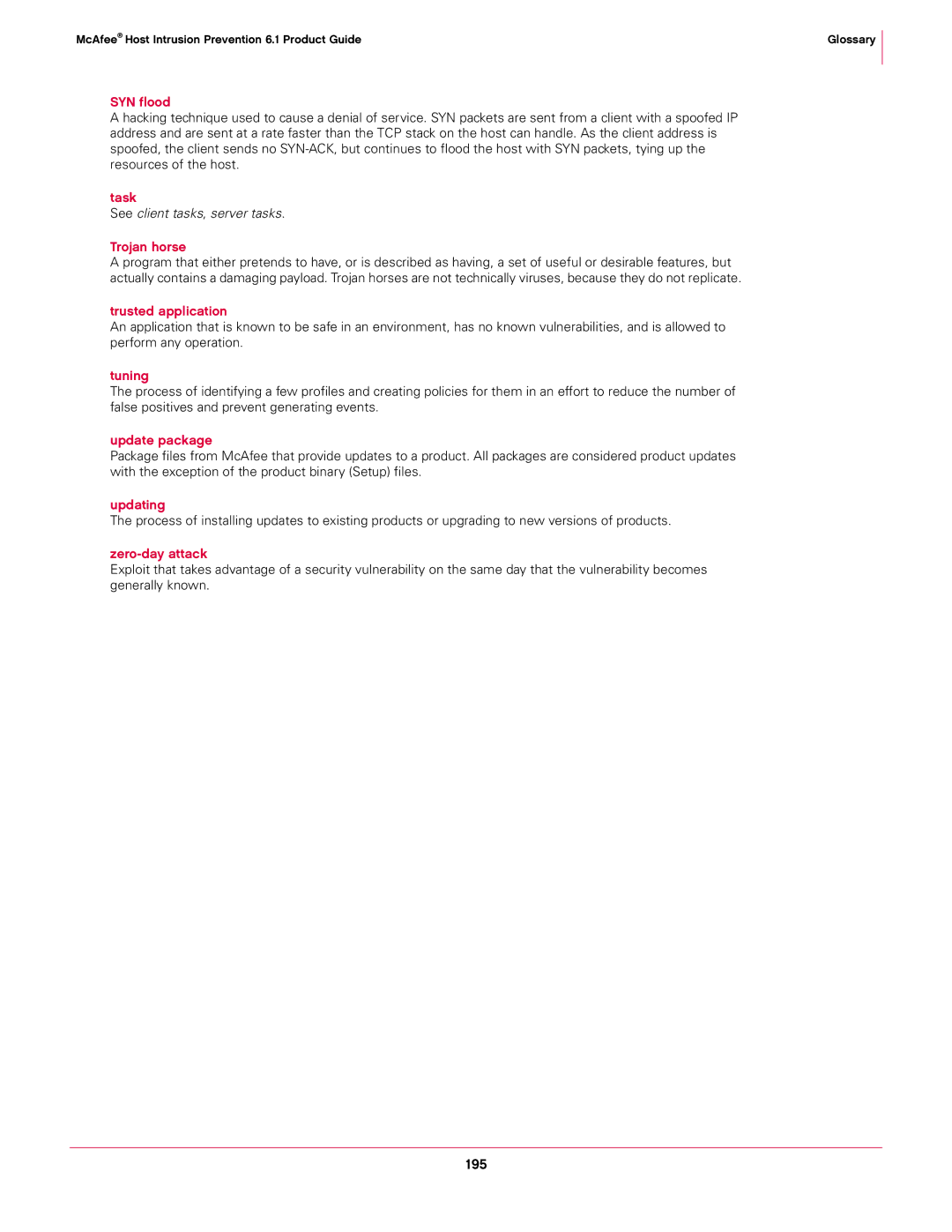
McAfee® Host Intrusion Prevention 6.1 Product Guide | Glossary |
SYN flood
A hacking technique used to cause a denial of service. SYN packets are sent from a client with a spoofed IP address and are sent at a rate faster than the TCP stack on the host can handle. As the client address is spoofed, the client sends no
task
See client tasks, server tasks.
Trojan horse
A program that either pretends to have, or is described as having, a set of useful or desirable features, but actually contains a damaging payload. Trojan horses are not technically viruses, because they do not replicate.
trusted application
An application that is known to be safe in an environment, has no known vulnerabilities, and is allowed to perform any operation.
tuning
The process of identifying a few profiles and creating policies for them in an effort to reduce the number of false positives and prevent generating events.
update package
Package files from McAfee that provide updates to a product. All packages are considered product updates with the exception of the product binary (Setup) files.
updating
The process of installing updates to existing products or upgrading to new versions of products.
zero-day attack
Exploit that takes advantage of a security vulnerability on the same day that the vulnerability becomes generally known.
